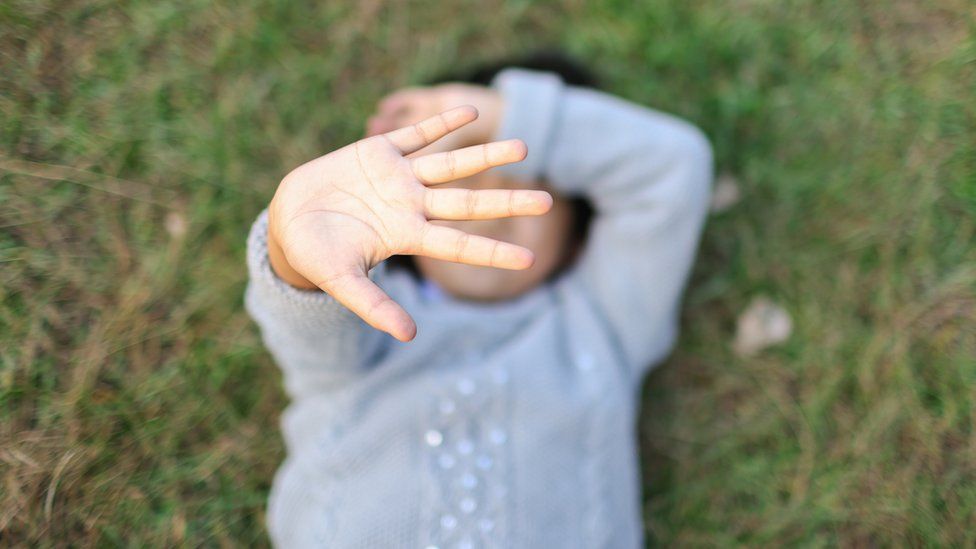ARTICLE AD BOX
 Image source, Getty Images
Image source, Getty Images
By Philippa Roxby
Health reporter
Smacking children should be made illegal in England and Northern Ireland, say children's doctors, calling current laws "unjust and dangerously vague".
Their report warns children suffer lasting mental and physical effects from being hit in the home.
Striking a child is already illegal in Scotland and Wales, and in many other countries around the world.
The government says parents are trusted to discipline their children.
A Department for Education spokesperson said: "Any form of violence towards a child is completely unacceptable and we have clear laws in place to prevent it."
But child health experts say children should be given the same protection as adults.
The Royal College of Paediatrics and Child Health's (RCPCH) report sets out why England and Northern Ireland should follow the example of Scotland and Wales in changing the law to make physical punishment of children illegal.
At present, if a child is smacked, hit or slapped in England and Northern Ireland, parents may be able to argue that this was "reasonable punishment" and avoid breaking the law.
The Children Act 2004 says it is unlawful to assault a child causing actual or grievous bodily harm, or cruelty.
But a review of studies by RCPCH found smacking can be damaging to children's behaviour, health and wellbeing.
It said, for example, children who experience physical punishment are nearly three times more likely to develop poor mental health and twice as likely to be on the receiving end of serious physical assault and abuse.
Being smacked also increased the chances of having difficult relationships with family and being aggressive later in life.
'Violence is cyclical'
Prof Andrew Rowland, who leads on child protection at the college, said he was regularly faced with "extremely challenging" situations when he had to talk to families about the rules around physical punishment of children, where some forms or punishment are legal and some are not.
He said this created "a grey area" when there was "no need for any debate" on safeguarding children.
Image source, Getty Images
"Changing the laws in England and Northern Ireland will give us absolute clarity and ensure there are no instances where it is acceptable or lawful to smack a child," Prof Rowland said.
"Research and history show us that violence is often cyclical in nature, it is up to us as adults to break that cycle for our children."
Corporal punishment of children in Scotland was made illegal in 2020 and in Wales in 2022. Although it is too soon to say if there has been a reduction in physical punishment since, the experiences of countries such as Germany, Romania and Sweden suggest that changing the law can have a real impact.
According to the report, these countries have seen a tangible reduction in the number of children who report being hit at home.
There are more than 60 countries worldwide giving children the same protection as adults from assault and violence.
Child health experts say they want children across the UK to be given the same rights and they are urging all political parties to include a promise to remove the current 'reasonable punishment' defence in their manifestos for the general election.
Joanna Barrett, associate head of policy at the NSPCC, said: "All children deserve the same protection from assault as adults. Yet in England and Northern Ireland, children continue to be exposed to a legal loophole that can undermine their basic right to protection under the guise of 'reasonable chastisement'.
"That's why we're calling on political leaders in England and Northern Ireland to commit to bringing an end to the physical punishment of children - as the rest of the UK have successfully done."
The UK government said there were no plans to change the law on smacking in England and said it would monitor the impact of law changes in Scotland and Wales.
"We are supporting teachers, social workers and all safeguarding professionals to spot the signs of abuse or neglect more quickly," a Department for Education spokesperson said.
They added: "Our statutory framework for safeguarding children in England makes clear what organisations should do to keep children safe."
Are you a parent or a medical professional with a view on this story? Share your experiences by emailing haveyoursay@bbc.co.uk.
Please include a contact number if you are willing to speak to a BBC journalist. You can also get in touch in the following ways:
If you are reading this page and can't see the form you will need to visit the mobile version of the BBC website to submit your question or comment or you can email us at HaveYourSay@bbc.co.uk. Please include your name, age and location with any submission.

 1 year ago
75
1 year ago
75








 English (US) ·
English (US) ·